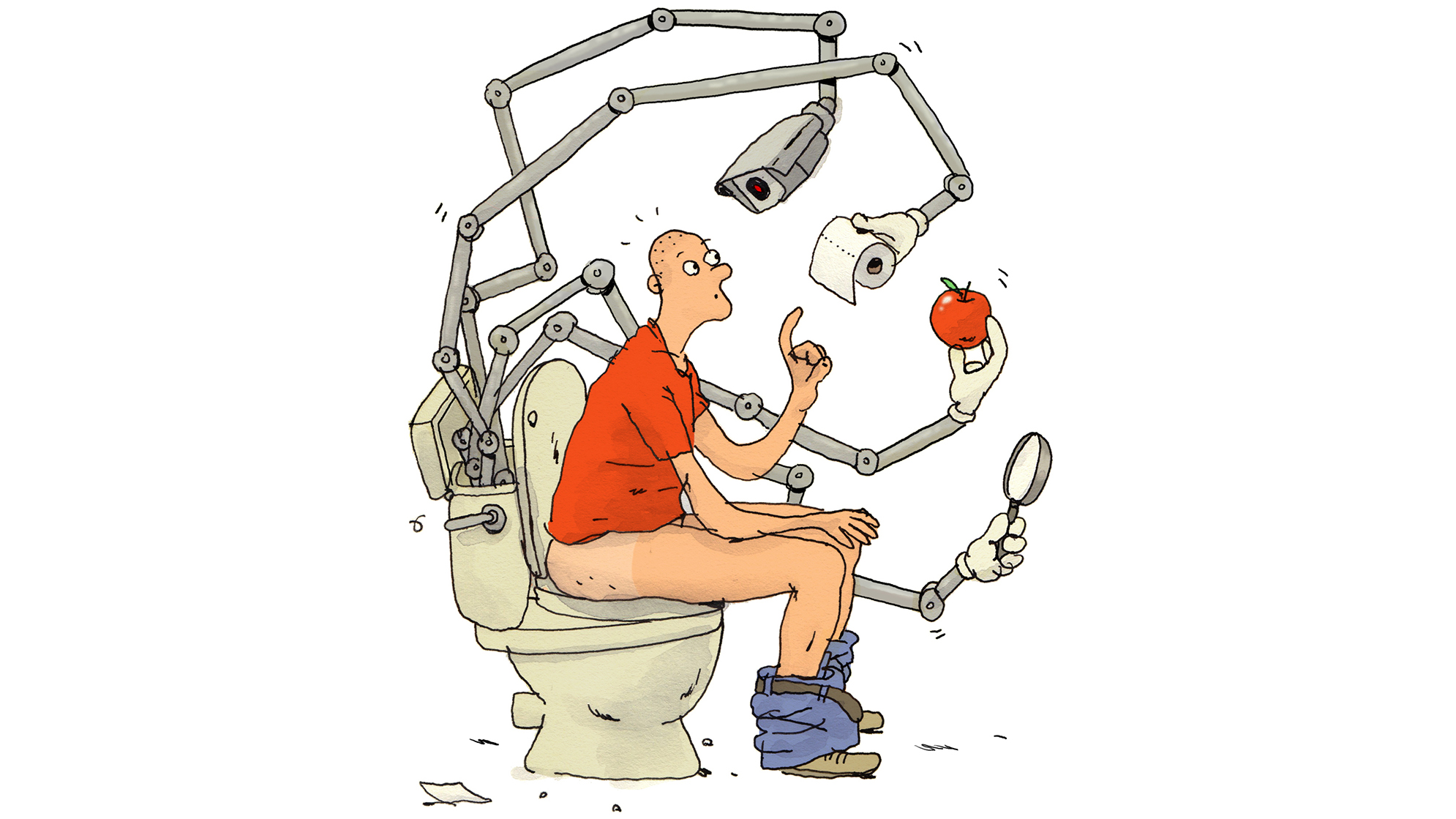The Fourth Amendment guarantees the “right of the people to be secure in their persons, houses, papers, and effects, against unreasonable searches and seizures.” How is this even possible in the current, much less the future world? The other day, while exercising at SoulCycle, I noticed the disclaimer “SoulCycle premises are monitored by 24-hour video surveillance. Your image may be recorded.” This doesn’t surprise me—it’s now the norm.
Soon, toilets will be “smart” and analyze what goes into them, adjusting our diets. Devices such as smart refrigerators will take this data and present recommended meals; prescriptions or vitamins to improve our bodily functions will be automatically ordered. Sure, the smart toilet—and many other devices like it—have some advantages, but in this IoT world we’re building, they also present major surveillance conundrums. What happens if that data gets into the wrong hands, such as the government? Or what about your insurance company? Will they start offering dynamic pricing and coverage based on how well you’re taking care of yourself? When does automated marketing cross the line with brands targeting us in real time?
For the sake of argument, let’s ponder this issue from a different angle: If violent crimes could be nearly eliminated, and we all could be safe—but it came at the cost of complete submission to surveillance—would you be for or against this? Whether it’s a smart toilet or a smart surveillance system in your neighborhood, there are lots of pros and cons here. Personally, I feel the upsides far outweigh the downsides. I understand and respect those who feel there’s substantial impact on our rights, of course, but as the Silicon Valley disruptors—no, destructors—continue to build a single massive robotic data system to wipe us away, the positive, as I see it, is that crime will soon be nonexistent, or at the very least largely thwarted. Even smart toilets may prove beneficial.

